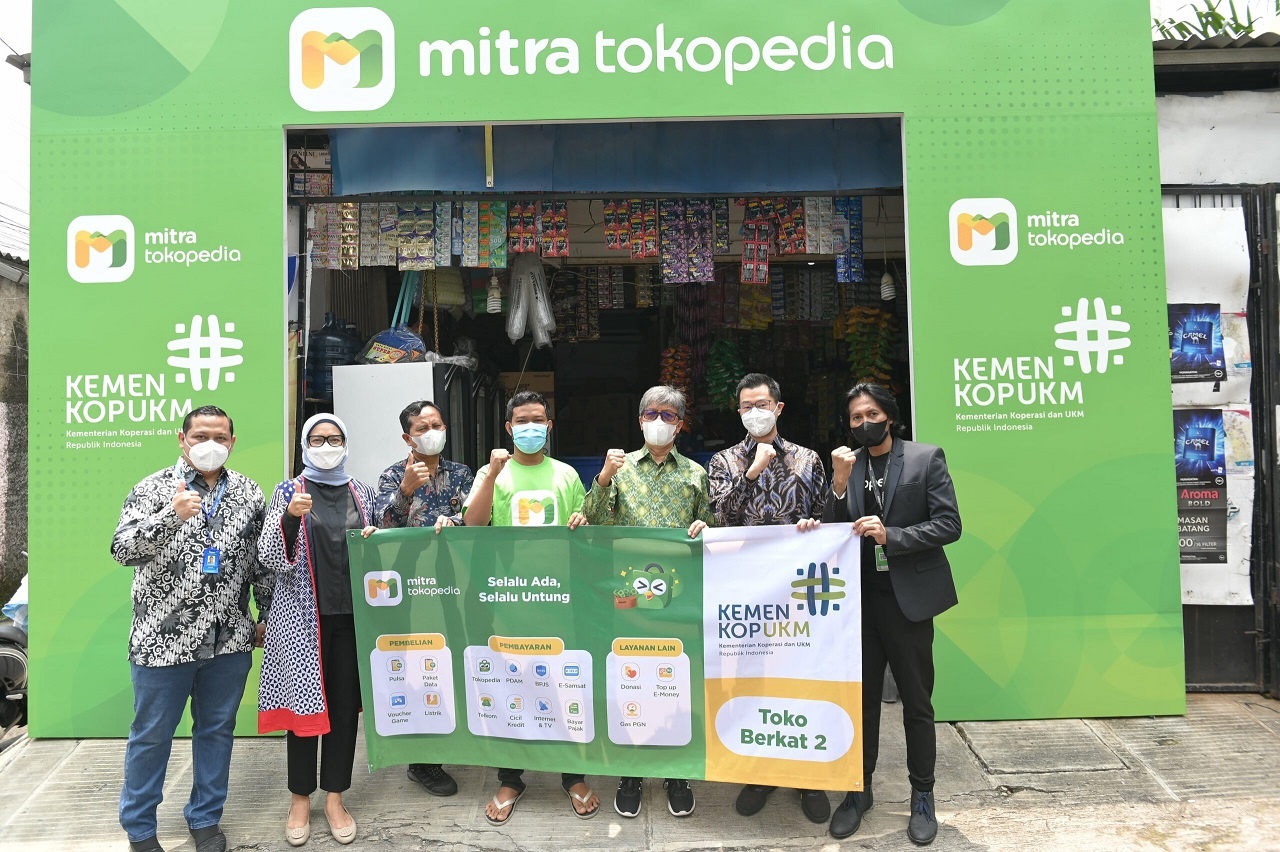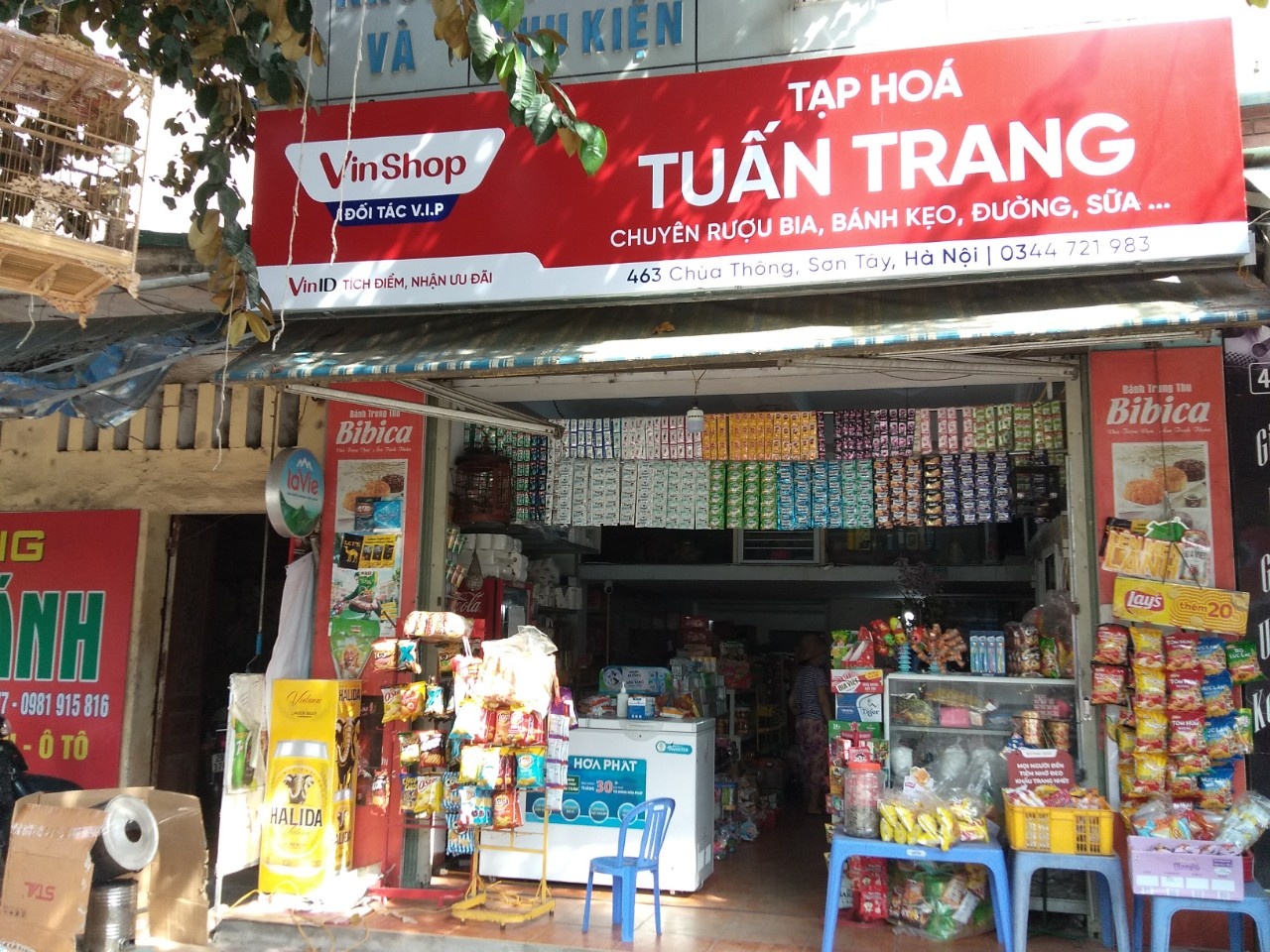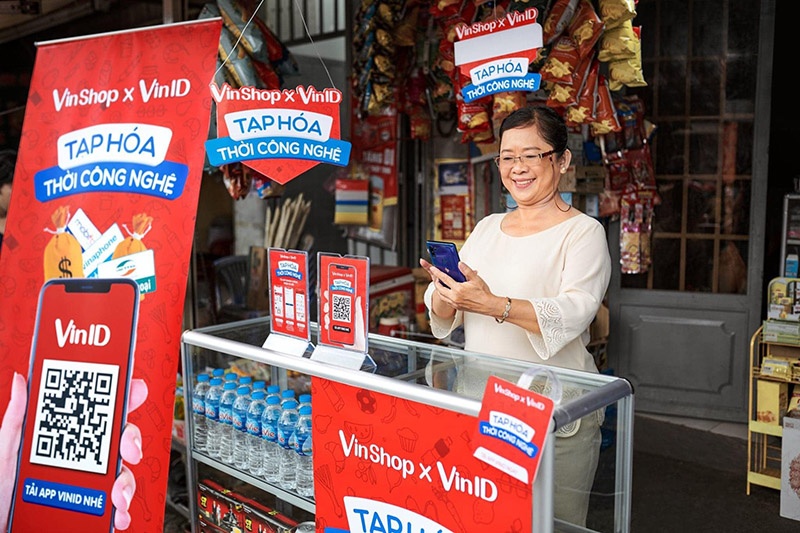VinShop set to become Vietnam's next unicorn
Tokopedia is a combination of Toko (shop) and encyclopedia. It adopts a similar business model as e-commerce giant Alibaba. Tokopedia is a shopping platform where every business can easily arrange and sell its products.
As of June 2020, Tokopedia recorded a valuation of up to $7 billion and became the third-largest unicorn in Southeast Asia, trailing behind Grab (Singapore) and GoJek (Indonesia), according to CB Insights.
 |
| Tokopedia is successful in bringing technologies into grocery stores in Indonesia |
In 2018, Tokopedia unveiled its ambitious plan to penetrate Indonesia’s economy worth $1 trillion, which is the largest economy in Southeast Asia.
It launched Mitra Tokopedia for the owners of warung (a small family-owned business) or outdoor grocery stalls serving their neighbourhoods. Mitra Tokopedia has recorded one million downloads with 2 million warung in the island nation.
Mitra Tokopedia not only connects grocery owners with suppliers but also removes geographic barriers and eases the retail operations. Mitra Tokopedia has become the favourite app among retailers. It is now available across 20 major cities, including Bandung, Yogyakarta, Banda Aceh, Medan, Palembang, and Pekanbaru.
Research by PT Visa Worldwide showed that over 90 per cent of transactions in Indonesia are paid by cash. However, tech unicorns like Tokopedia are pioneers in bridging the gap between offline and online shopping.
Many large supermarket chains and e-commerce platforms have proved their strength but they still can replace grocery stores, especially in Asia.
The brick-and-mortar grocery outlets have some advantages including convenience, friendliness, and proximity to residential areas. Tech companies like Tokopedia and Warung Pintar in Indonesia have shaken hands with traditional retailers.
This is the first step to digitalising traditional retail channels and offering long-term benefits for the retail market, grocery store owners, and consumers.
The billion-dollar potential of VinShop
There are some similarities in the operation of retail chains and consumer habits between Indonesia and Vietnam. The success of Tokopedia in Indonesia inspired One Mount Group to develop its VinShop platform.
One year after its launch, VinShop has connected with over 100,000 traditional grocery outlets, becoming Vietnam’s largest FMCG distributor. However, the figure is still limited in a lucrative market like Vietnam.
 |
| VinShop is expected to follow the successful model of Tokopedia in Indonesia |
According to Nielsen, Vietnam has 1.4 million grocery stores in operation. Kantar Worldpanel, the world's leading consulting and market research company, said that traditional retail channels including wet markets and grocery stores still meet 85 per cent of consumer demand. This model offers some unique selling points including convenience, good services, low cost and selling through close relationships.
People like to buy necessities at the grocery store because it’s close to home. They can buy small quantities several times each day.
The traditional retail model is also more responsive to consumer demand than modern retail channels. At the same time, grocery store owners often have close relationships with customers. Above all, grocery store owners often use their own premises. They can offer better prices to customers as they don’t suffer any rental fees.
VinShop has equipped 100,000 grocery stores in Vietnam with technological and financial solutions from its digital platform. In some main cities like Hanoi and Ho Chi Minh City, VinShop has reached every corner. Data by VinShop reveals that the platform has covered 80 per cent of the core markets in Vietnam’s two most populous cities.
 |
| VinShop offers a cashless payment experience to customers through VinID Pay at grocery stores |
According to experts, it is not easy for grocery store owners to change their operational processes which have existed for decades.
Many merchants said that they can earn a lot thanks to the benefits brought by VinShop. These include a portfolio of diverse inventories from suppliers as well as transparent prices. VinShop also offers 100 promotion campaigns each month as well as a monthly loyalty customer policy.
What the stars mean:
★ Poor ★ ★ Promising ★★★ Good ★★★★ Very good ★★★★★ Exceptional
Related Contents
Latest News
More News
- State corporations poised to drive 2026 growth (February 03, 2026 | 13:58)
- Why high-tech talent will define Vietnam’s growth (February 02, 2026 | 10:47)
- FMCG resilience amid varying storms (February 02, 2026 | 10:00)
- Customs reforms strengthen business confidence, support trade growth (February 01, 2026 | 08:20)
- Vietnam and US to launch sixth trade negotiation round (January 30, 2026 | 15:19)
- Digital publishing emerges as key growth driver in Vietnam (January 30, 2026 | 10:59)
- EVN signs key contract for Tri An hydropower expansion (January 30, 2026 | 10:57)
- Vietnam to lead trade growth in ASEAN (January 29, 2026 | 15:08)
- Carlsberg Vietnam delivers Lunar New Year support in central region (January 28, 2026 | 17:19)
- TikTok penalised $35,000 in Vietnam for consumer protection violations (January 28, 2026 | 17:15)

 Tag:
Tag:




















 Mobile Version
Mobile Version